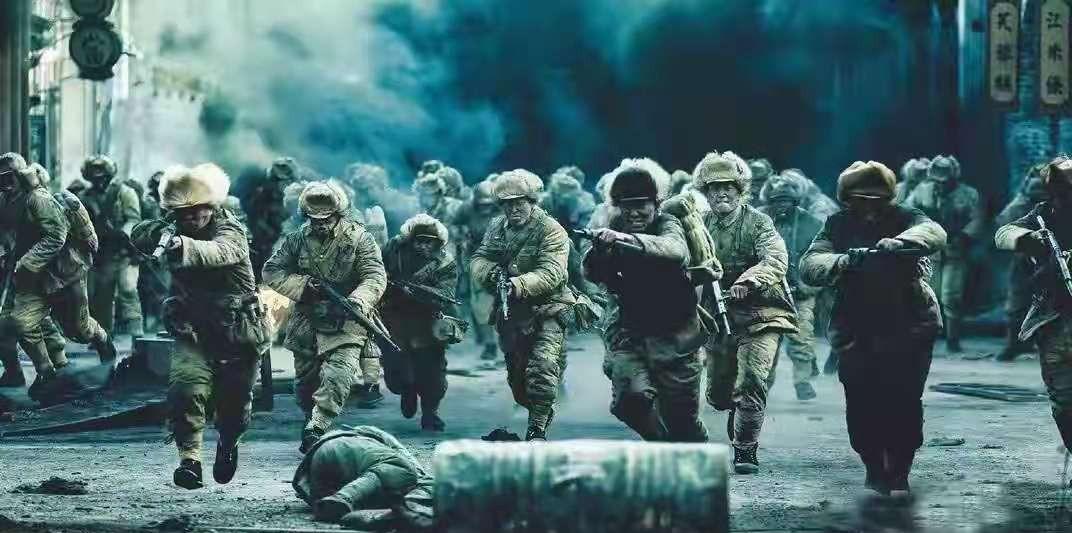During the Battle of Pingjin in 1949, the enemy forces in Peiping were the 4th Corps and the 9th Corps, the 35th Army, the 104th Army, the 16th Army, the 31st Army, the 13th Army, the 101st Army and other 6 corps, as well as 1 newly formed cavalry 4th Division, 1 supply area headquarters. These units, the Tiger Head Army of the 35th Army, the 101st Army, and the 104th Army, were all Fu Zuoyi's concubines, and the other 13th Army, 31st Army, and 16th Army were all Chiang Kai-shek's concubines.

In addition, there was the 11th Corps in Zhangjiakou, which was Fu Zuoyi's concubine unit, which was subordinate to the 105th Army and 2 cavalry brigades. In Tanggu, Tianjin, was the 17th Corps, which was Chiang's subordinate unit, including the 62nd Army, the 94th Army, the 86th Army and the 87th Army, as well as the Independent 95th Division Zhao Zilong Division, the 326th Division and the 332nd Division, and 2 traffic police brigades. This was Fu Zuoyi's 500,000-strong army at that time.
At that time, the Liaoshen Campaign had ended, and the military situation at this time was already very clear, and the millions of troops in Siye were bound to enter the pass to participate in the battle. The enemy in North China is already tired of dealing with one North China Field Army alone, and another Four Fields will certainly be completely destroyed. To this end, although Jiang hoped that the main force of Pingjin could be transported south by sea and the defense line in Jiangnan could be rebuilt, there were ship difficulties in shipping Shanghai, and at the same time, Fu Zuoyi's troops were unwilling to go south.
To this end, Fu Zuoyi put up a defensive line that contracted in Beiping, Tianjin and Tanggu, while transferring many dependents and supplies to Tianjin ready to flee south. However, Fu Zuoyi was reluctant to zhangjiakou, just when he was undecided. At the end of November 1948, the fighting had already begun in Zhangjiakou. The 35th Army, the ace army sent out by Fu Zuoyi to reinforce Zhangjiakou, was completely annihilated by our army in New Security.
In December, Zhangjiakou was liberated, and Fu Zuoyi's main force, the 105th Army, and other units were completely annihilated by our army. By this time, Fu Zuoyi had been destroyed, both to the south and west to Suiyuan. It had to be changed to the so-called divisional defense in an attempt to resist the struggle. At the same time, Li Wen was ordered to be the commander of the Beiping defense, Chen Changjie to be the commander of the Tianjin defense, and Hou Jingru to be the commander of the Jintang defense.
After December 12, our army surrounded Peiping, and the enemy built fortifications on the one hand, and on the other hand stepped up the opening of two airfields, Dongdan and the Temple of Heaven. By January 1949, the enemies in the Pingjin area were only 3 corps of Li Wen's 4th Corps, 2 corps of Shi Jue's 9th Corps, 3 corps of Hou Jingru's 17th Corps, plus Fu Zuoyi's 262nd Division of the 35th Army, etc., were already crippled and trapped in three isolated cities.
In order to struggle, Fu Zuoyi re-completed several Hebei security brigades with the 35th Army, the 101st Army, and the 104th Army. In order to control Peiping, Fu Zuoyi transferred a guard regiment to protect himself, and the provisional 17th Division protected itself on the periphery. Fu Zuoyi's troops were all inside Beiping City, and All of Jiang's troops were outside the city. Because, on the one hand, Fu Zuoyi was worried that our army would enter the city, and on the other hand, he was afraid that Chiang Kai-shek's troops would rush in and kidnap him.
In January 1949, our army liberated Tianjin, and then the enemy troops in Tanggu desperately boarded ships and fled to Shanghai. Now only Fu Zuoyi in Beiping remained. Beiping lacked fortifications and was besieged, and more than 2 million people in the city ate and drank every day, and the coal burned needed to be transported from outside the city. Now, even Chiang Kai-shek's troops have completely lost their fighting spirit.
Turned into a turtle in an urn, the trend has gone, and every day in despair is to gather to eat, drink and dance to kill time. Subordinate officers and soldiers harassed the people everywhere, causing a miasma of smoke in the city. In particular, Li Wen, commander of the city defense, Shi Jue, commander of the 9th Corps, Zhou Tiren, commander of the 16th Army, Yuan Pu, commander of the 16th Army, Huang Xiang, commander of the 92nd Army, Zhu Jingmin, commander of the 94th Army, and other Chiang kai-shek generals even had to eat Peking roast duck every day.
In the end, Fu Zuoyi decided to revolt on the battlefield, and the senior generals of the Chiang kai-shek army, such as Li Wen, Shi Jue, Yuan Pu, and other officers of the Chiang kai-shek army at and above the division level, as well as officers above the youth corps, mostly fled from Beiping by plane. However, Huang Xiang's 92nd Army remained in Beiping and the whole army revolted.
Zhu Dachun, the commander of the 35th Army, later served as the second deputy commander of the 49th Army of our army, and was later awarded the rank of colonel. After Chang An Chunshan, the 104th Army, he successively served as a member of the Suiyuan Military and Political Committee, the director of the Suiyuan Provincial Transportation Bureau, and the director of the Suiyuan Provincial Forestry Bureau. Huang Xiang, commander of the 92nd Army, later worked as a researcher at the university. Li Shilin, commander of the 101st Army, held various positions as a senator of the Zhangjiakou CPPCC. Liao Kang, commander of the 31st Army, fled to Hong Kong and later taught in Malaysia.